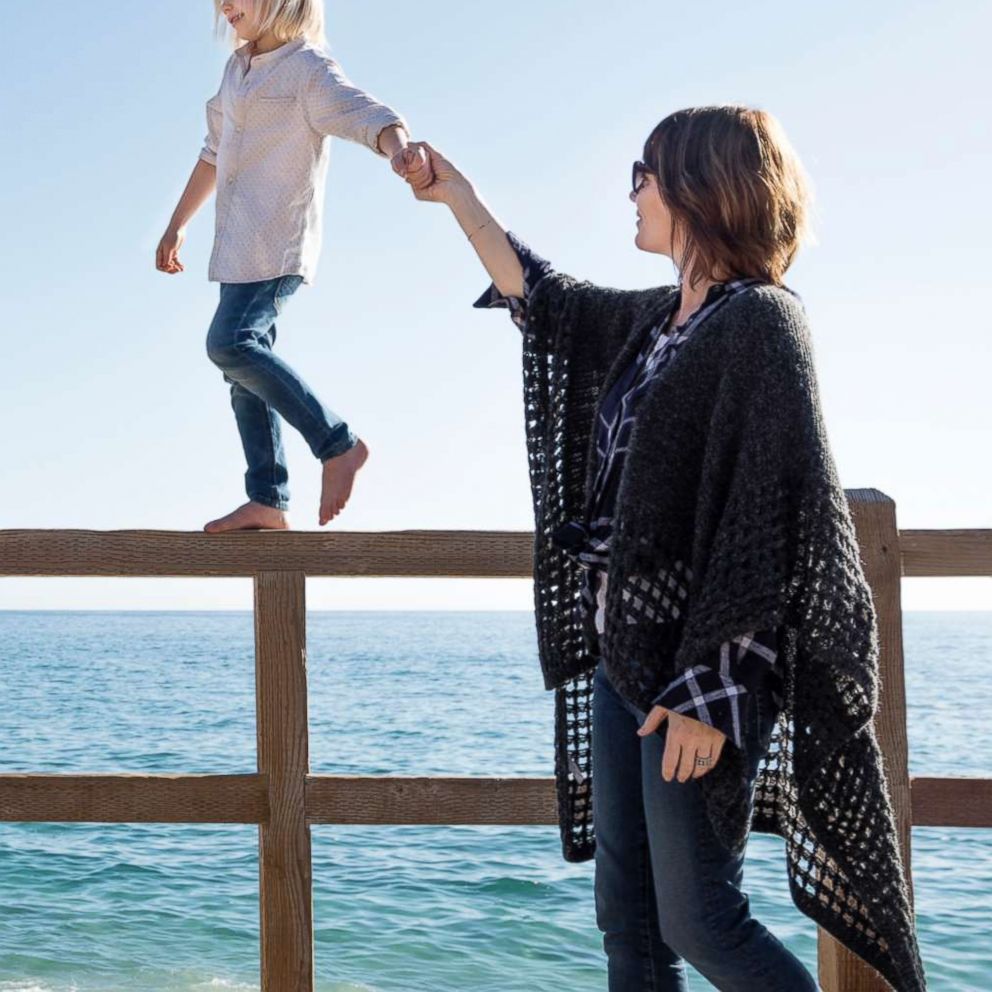Mom reveals her 'phoneless 11-year-old' was 'lost in Manhattan and survived'
Micaéla Birmingham wrote the buzzed-about piece for The New York Times.
A mother is sparking a debate on tweens and smartphone usage after she revealed in an article that her child was lost in New York City without a device on-hand.
Micaéla Birmingham, an Emmy Award-winning writer-director and executive producer at "Scary Mommy," wrote an opinion piece for The New York Times titled, "My Phoneless 11-Year-Old Was Lost in Manhattan and Survived."
In the buzzed-about story published Wednesday, Birmingham details how her eldest daughter and the babysitter wound up at different Starbucks locations.
"I got a text from the sitter: "I’ve been in Starbucks for 30 minutes and I don’t see her," Birmingham wrote. "My heart started to race. My perfect little plan had just blown up into an epic fail. Where could she be? It’s dark. She has no phone. So much for my high and mighty plan to swim against the smartphone tide."
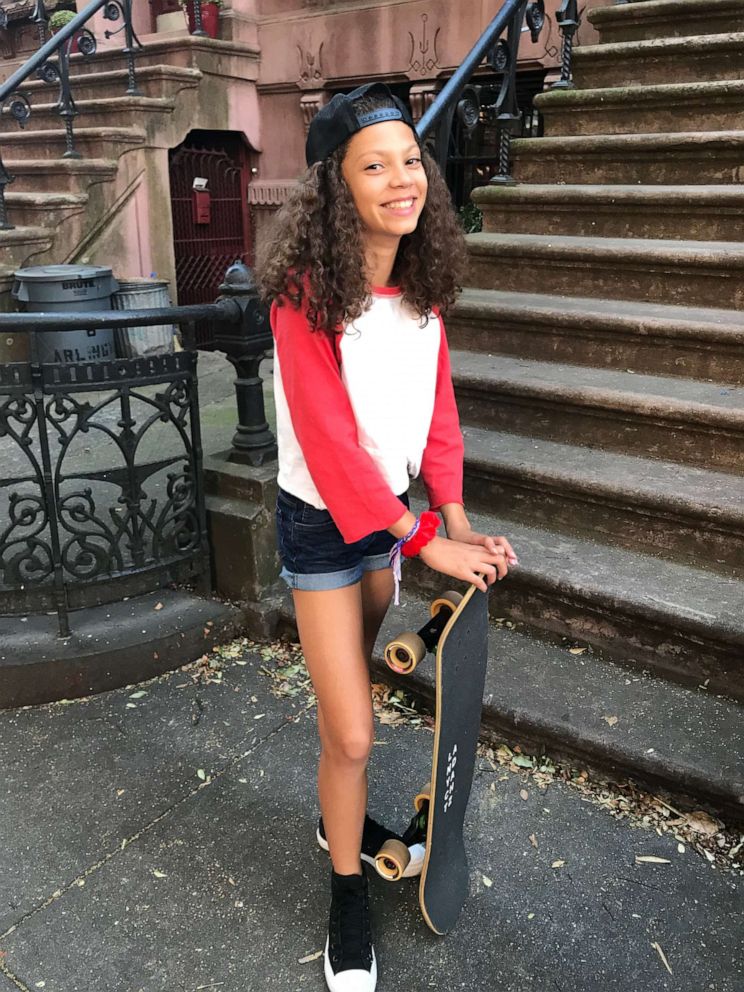
She went on, "Now she’s unreachable. Alone. In New York City. It’s dark. Damn you, Netflix true-crime specials, for putting visions in my head. Also, damn you, Liam Neeson, for those 'Taken' movies."
Birmingham of Brooklyn, told "GMA" that both her 10 and 11-year-old daughters do not own smartphones.
She and other class parents had banned together, making a pact that they wouldn't allow their kids to have them until they felt it was the right time.
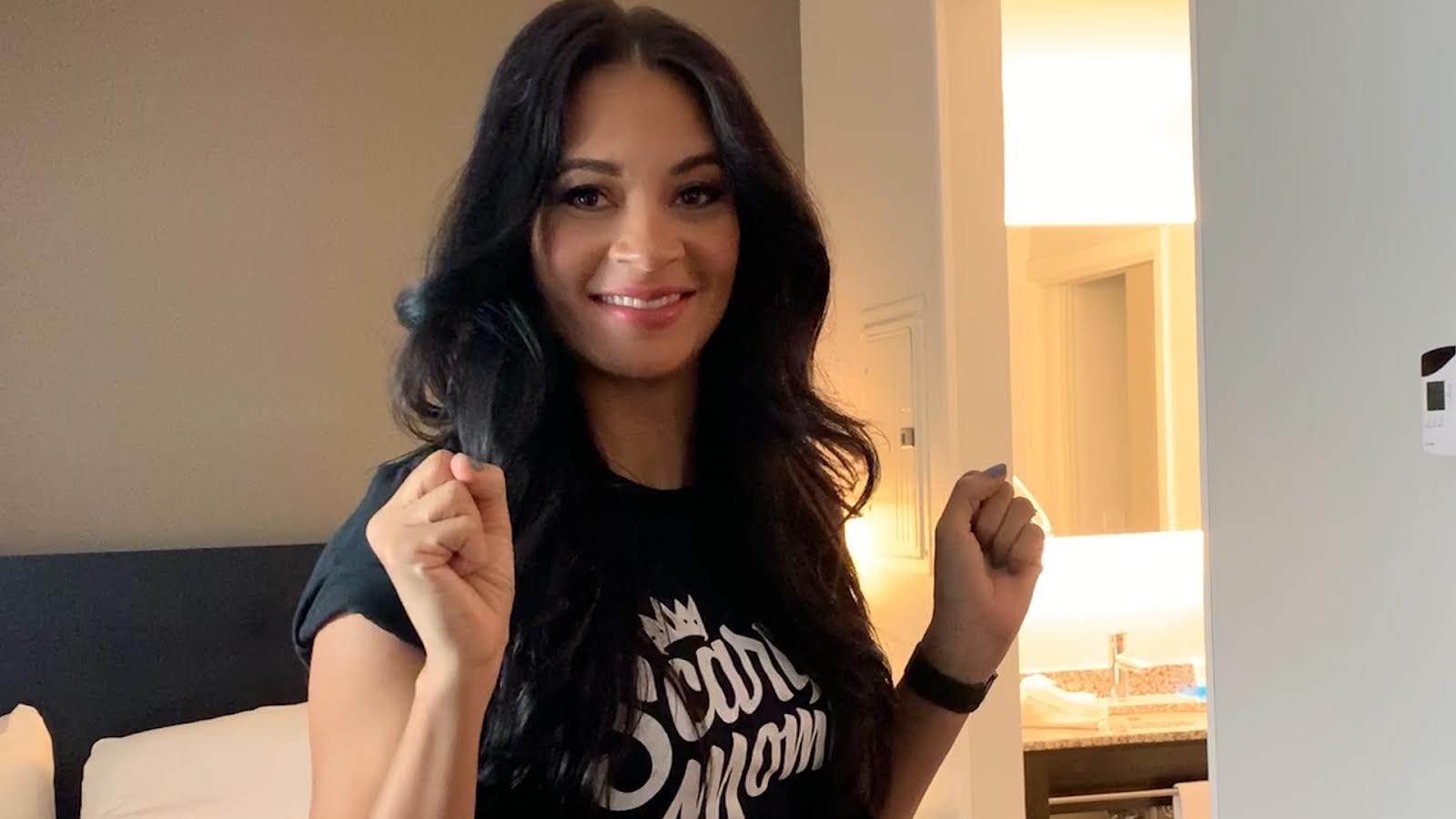
"If no one has one, there's no one to text and no fun. It's not a party if there's no one at the party," she explained. "We were aiming for face-to-face interaction between our kids and value that as long as possible."
But when her sixth-grader was lost in Manhattan and phoneless, Birmingham was on the opposite of town in the emergency room with her youngest daughter who was being treated for a broken hand. Her husband was out of town.
"There I was in the E.R. triage area, watching other frantic parents enter with newborn fevers, bad coughs and chubby fingers hurt from getting stuck in doorways," she wrote in the Times. "All I could think was that losing a kid on then suddenly, my phone rang from an unknown number. It was my daughter."
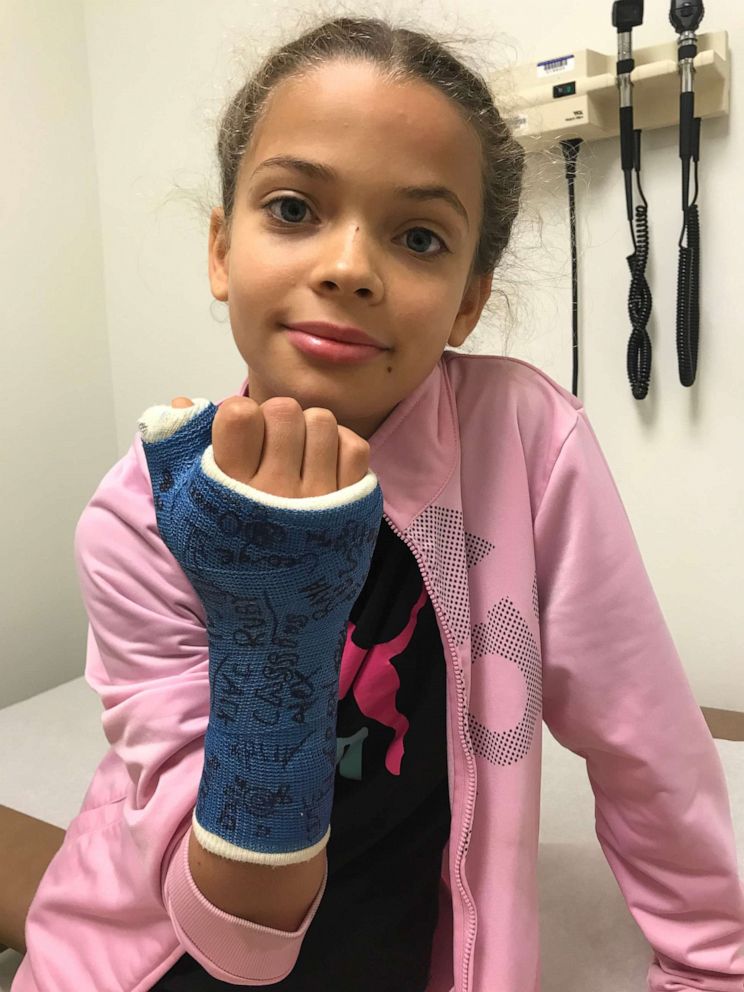
Birmingham described how her child dialed using a phone at the lobby desk of a nearby apartment building.
"There was not an ounce of panic in her voice," she told "GMA." "She felt like she was a big girl and handled the situation."
Birmingham said she was relieved by the call.
It also gave reassurance that her kids are safe without smartphones, writing in her piece: "Not only was her face not glued to a screen as she sat alone in a coffee shop, unaware of her surroundings, instead she was alert and observing the people around her. She spoke to an adult, advocated for herself and calmly handled the situation, making good choices."
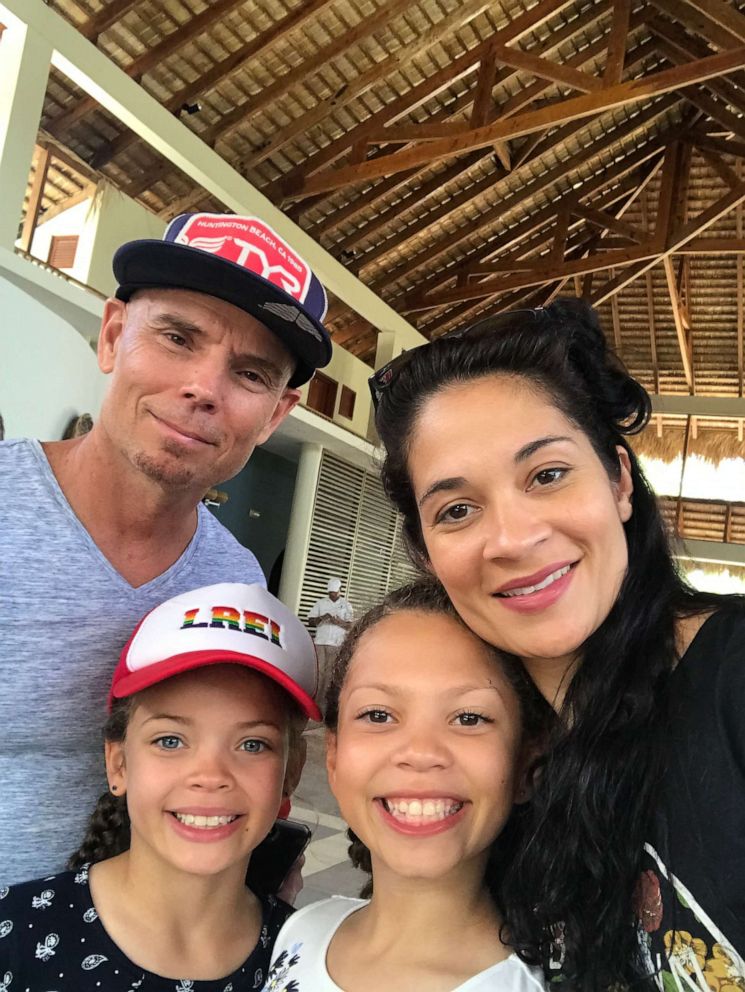
After the incident Birmingham decided to opt for a flip phone for her daughter.
She's still steering clear of smartphones though, and believes their basic safety tools are needed in order for kids to problem solve on their own and without a touch screen.
"I want my girls to navigate the city with confidence and not fear," she said. "Figure out what to do if the train breaks down ... is it asking for directions? Going to the station manager? It's not the device that makes the kids safer. It's their ability to navigate a tough situation."
"To me, that's better than knowing their latitude and longitude on any given day," Birmingham added, noting that GPS might not keep your child safer than their own emotional intelligence.
Many parents commented on the article, arguing if the mom had the right approach.
"It is irresponsible in this day and age to have a middle schooler walking alone without a flip phone to summon help," one person wrote. "I am glad your kid had a level head and only encountered good guys."
"My son didn't get a phone until 14, and my 10-year-old will have to wait two more years," another commented. "We've had stories like the author's - not so dramatic, but equally happy endings."
"Children ten years and up should be equipped with enough money for a taxi and a subway card," a parent said. "They should be instructed to seek out a police officer if they are lost or fearful ... A flip rather than a smartphone is also a good idea. The child at that age should have developed sufficient navigational skills not to require GPS."
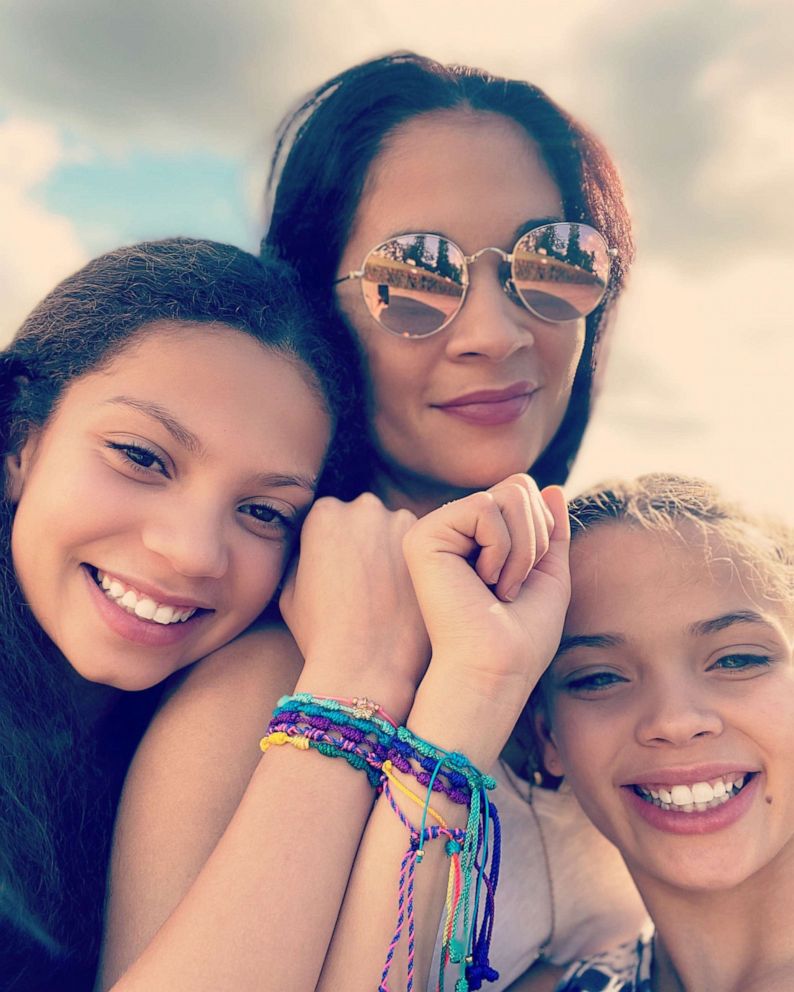
If you're considering a flip phone for your child, Becky Worley, a technology correspondent for ABC News and "Good Morning America," offers top reasons to buy one instead of a smartphone.
For one, kids won't get stuck in the vortex of games, social media and group-chat apps and there's less texting of photos.
Read more of Worley's tips here.


